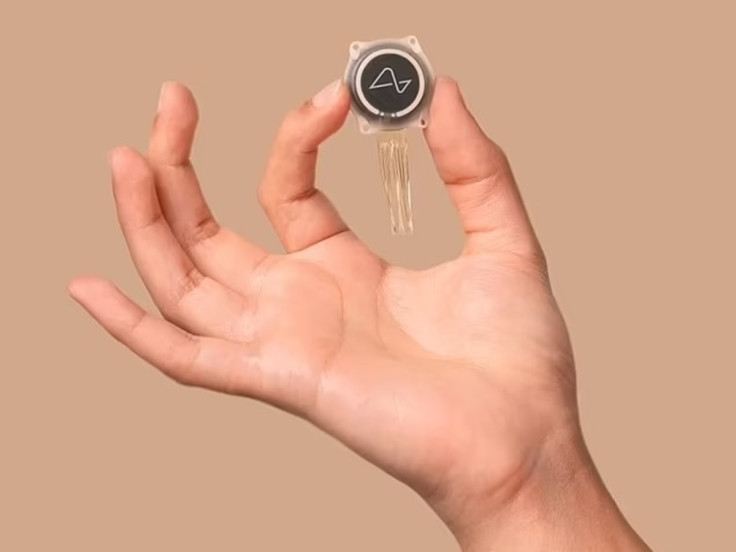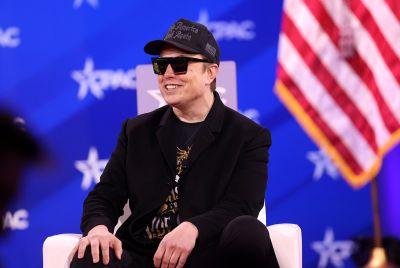Neuralink Achieves Two Brain Transplants in a Day, Aims for 20 by Year-End—Google DeepMind CEO Weighs In
Neuralink's technology facilitates direct brain-machine communication

Elon Musk's brain-computer interface firm Neuralink has reached a groundbreaking milestone, successfully performing two brain-computer interface implants in a single day.
The revolutionary achievement, announced on 21 July via X, marks the first time the neurotechnology firm has conducted dual surgeries within 24 hours, bringing its total number of human participants to nine.
This move brings it closer to its ambitious goal of completing 20 such procedures by the end of the year, a development that has already caught the attention of Google DeepMind's CEO.
Neuralink's Milestone: Two Implants in a Day
Neuralink announced on X (formerly Twitter) that it had completed procedures on its eighth and ninth human participants.
We successfully completed both P8 and P9 this weekend, our first time performing two surgeries in one day. Both participants are recovering well and in great spirits. We are looking forward to supporting them on their Neuralink journey.
— Neuralink (@neuralink) July 21, 2025
Musk reposted the announcement, sharing his excitement that Neuralink had carried out two such surgeries within 24 hours for the first time. He also highlighted the transformative potential of Neuralink's technology.
Neuralink will do live-changing good for ultimately millions, maybe billions, of people.
— Elon Musk (@elonmusk) July 21, 2025
Imagine your loved one being able to walk again or your parent with dementia being able to recognize their child again. https://t.co/I59yohrJ0e
The 54-year-old business magnate emphasised the profound impact it could have, suggesting scenarios where loved ones might regain their ability to walk or cognitively remember family members once again.
Early Successes and Ambitious Horizons
Neuralink has now operated on nine participants, including individuals with spinal cord injuries and those with amyotrophic lateral sclerosis (ALS). Reports indicate that participants are using the devices extensively, with some logging up to 100 hours of use each week.
Neuralink’s goal is to perform implants on at least 20 humans by the end of 2025 pic.twitter.com/Prbz3XvYUE
— Dima Zeniuk (@DimaZeniuk) July 21, 2025
In the future, the company plans to enhance the capabilities and reach of its brain-implant devices significantly. By 2028, it aims to integrate over 25,000 electrodes that can access deeper brain regions, potentially enabling the treatment of various neurological and psychiatric disorders, as well as exploring connections with artificial intelligence.
Google DeepMind Weighs In: A Broader Perspective
These developments haven't gone unnoticed by other prominent figures in the field, with Google DeepMind's Nobel Laureate CEO Demis Hassabis offering his perspective.
An amazing technology!
— Demis Hassabis (@demishassabis) July 21, 2025
Reacting to Musk's tweet, Hassabis noted, 'An amazing technology!' This brief yet enthusiastic comment from a leader in artificial intelligence raises a compelling question, posed by Mashable: Is Google, through DeepMind, also venturing into brain-computer interface (BCI) technology?
Neuralink's Practical Progress
Neuralink's accomplishment underscores the growing effectiveness of its technology. This system is designed to establish a direct connection between the human brain and machines, thereby facilitating seamless communication.
Since 2016, Neuralink has been at the forefront of neural interface technology. Their recent progress shows promising steps toward putting this technology to practical use.
Neuralink's initial patient, Noland Arbaugh, a person with quadriplegia, received the first Brain Chip Implant (BCI) in March 2024. The now 30-year-old quickly demonstrated his newfound ability, using only his thoughts to move a cursor, control music, and play games.
The Path Forward: Human-AI Symbiosis
Since the initial successful procedure, Musk has asserted that Neuralink could eventually address various conditions, including blindness. However, the company's clinical trials and current methods have drawn criticism due to ethical concerns.
Neuralink's ultimate goal is to create a comprehensive brain interface that enables high-bandwidth communication directly between any neuron in the brain and external devices. This idea could lead to groundbreaking progress in how humans and technology interact, made possible by automated surgical procedures and quick activation after an operation.
Musk's overarching aim with Neuralink is to achieve symbiosis with artificial intelligence. His other venture, xAI, is actively developing cutting-edge AI technologies. The company recently unveiled Grok 4 AI and three AI companions, which have generated considerable discussion online.
© Copyright IBTimes 2025. All rights reserved.






















